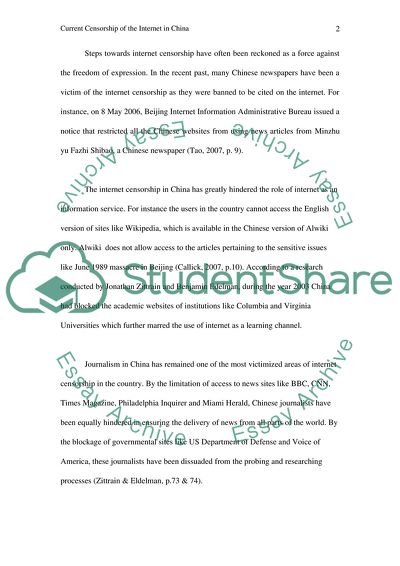Cite this document
(“Current censorship of internet in China Essay Example | Topics and Well Written Essays - 3750 words”, n.d.)
Retrieved from https://studentshare.org/media/1549150-current-censorship-of-internet-in-china
Retrieved from https://studentshare.org/media/1549150-current-censorship-of-internet-in-china
(Current Censorship of Internet in China Essay Example | Topics and Well Written Essays - 3750 Words)
https://studentshare.org/media/1549150-current-censorship-of-internet-in-china.
https://studentshare.org/media/1549150-current-censorship-of-internet-in-china.
“Current Censorship of Internet in China Essay Example | Topics and Well Written Essays - 3750 Words”, n.d. https://studentshare.org/media/1549150-current-censorship-of-internet-in-china.


